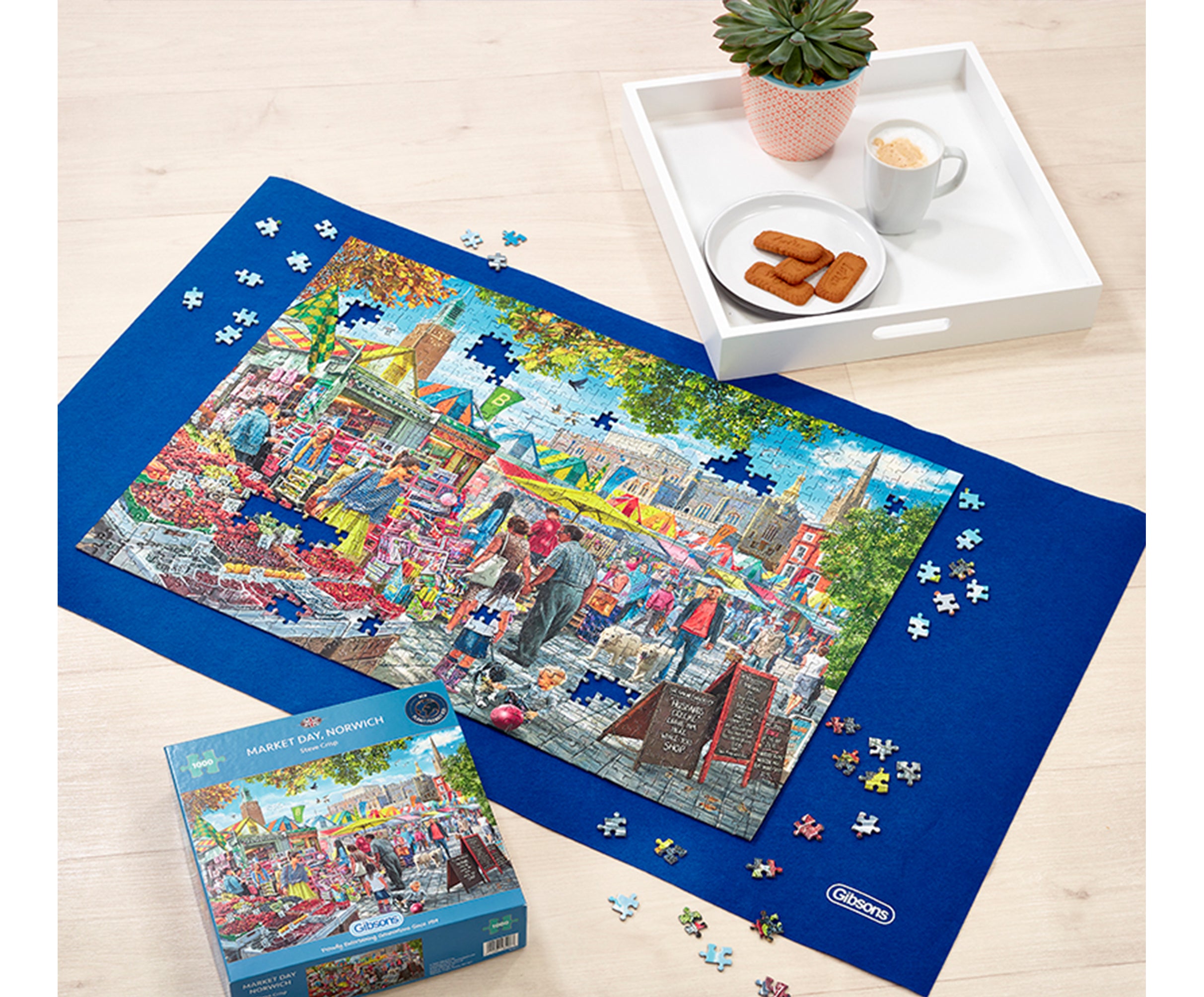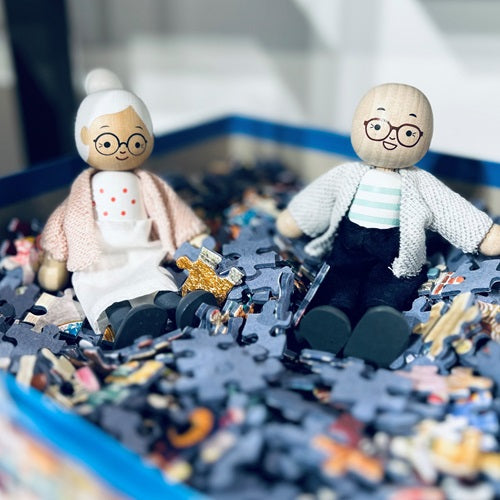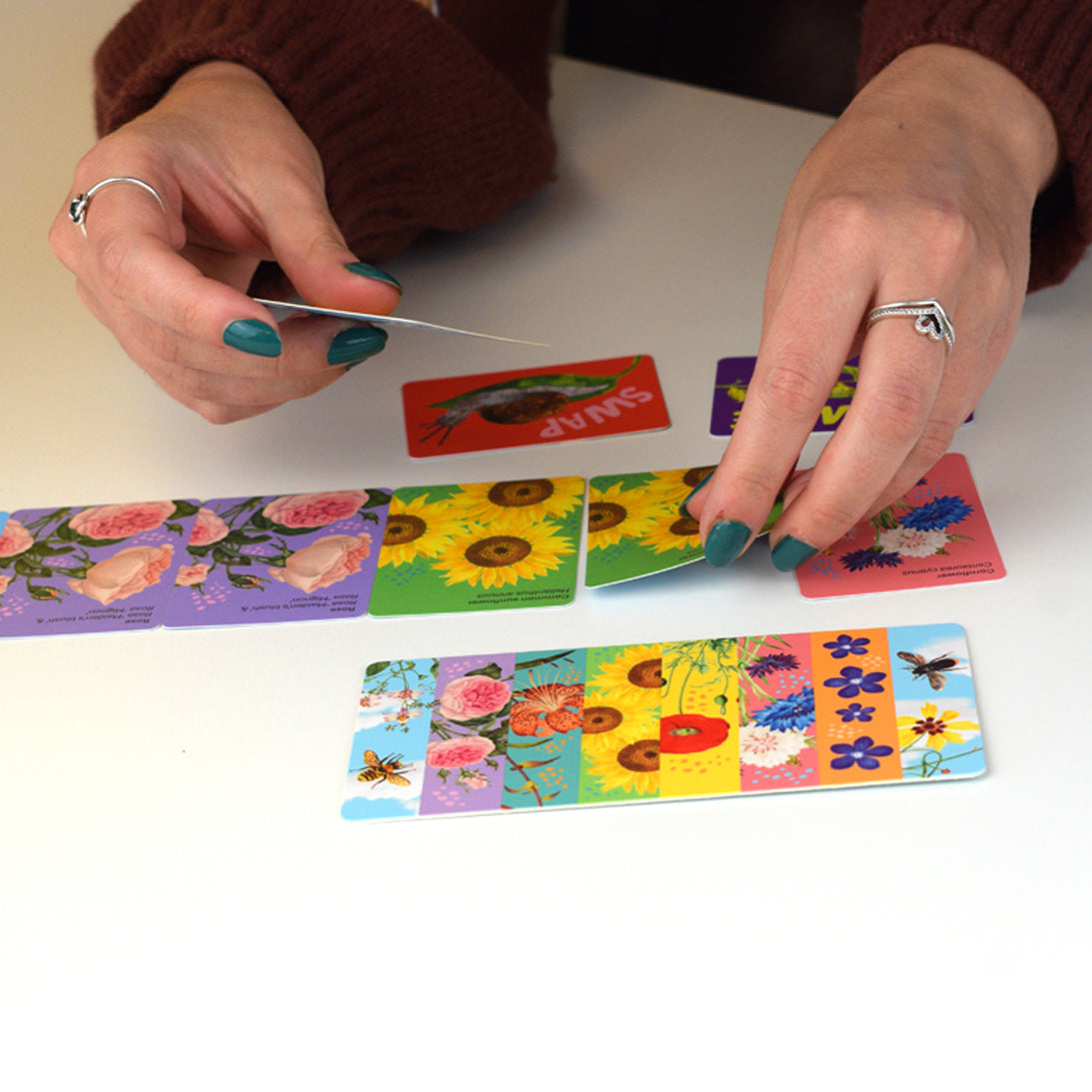
This blog is written by Savannah Davenport, from our Customer Services team.
When you think about jigsaw puzzles, what are the first thoughts that come to mind? For me, it is my paternal grandfather. As a child, whenever I went to his house there was always a jigsaw puzzle being completed at the end of the dining room table. I remember looking at it while I was force-fed overcooked carrots and then given a slice of ice-cream cake for dessert. It is the first distinct memory I have of jigsaws, although I’m sure I completed them as a child as well.
I have to be perfectly honest and say that I tend to associate jigsaw puzzles with my grandparent’s generation. Grandparents and children. When I worked as a nanny, I would always be trying to encourage the kids to do a jigsaw puzzle. Partly because I enjoy doing them myself, but also because it’s a fabulous way of keeping children occupied for a period of time. Additionally, they help teach children problem solving skills and strategic thinking while they figure out which pieces goes where. Importantly, children also learn to be patient while they take the time to complete the image, and we can’t forget that puzzles can also be beneficial for educational purposes. Often children’s puzzles have maps, animals or numbers, so they’re also valuable learning tools.

You can find our Little Gibsons range of games and puzzles here, perfect for smaller hands.
And of course, puzzling is fantastic for the elderly. My grandmother spends several hours a day piecing together jigsaws as it keeps her mind active. Especially at the moment with the COVID-19 pandemic, the older generations can keep themselves busy with puzzles. Jigsaws are also ideal for those who are living with dementia and Alzheimer’s, helping to spark conversation and reminiscing about the past. Our Piecing Together Collection was created to provide those living with dementia, limited fine motor skills or visual impairments, with a fun activity that can be enjoyed alone or with a loved one. The large, easy to handle pieces and beautiful images have been carefully designed to be age-appropriate for adults, yet accessible for all. Not only does completing a jigsaw puzzle aid motor skills, but the puzzle images in our Piecing Together Collection were also chosen specifically to evoke fond memories from the mid-20th century.

Find our full Piecing Together Collection here.
Jigsaws aren’t just for children and the elderly though. I spoke to some of my friends and they recall caravan holidays where their family would gather around the table to complete a jigsaw. This is reminiscent of our 500pc puzzle, The Missing Piece, which depicts a couple who are away on holiday completing their own jigsaw. Many families also enjoy puzzling particularly around Christmastime, and with the vast range of Christmas jigsaws it’s easy to see why – this is an activity that the whole family can enjoy. It’s one of the many benefits of doing a jigsaw: it’s easy to pick up and complete. There are no instructions involved and therefore everybody can be part of it without having to figure out how it works and what to do.

The Missing Piece - Trai Hiscock - 500pc
Another misconception is that puzzles are good for individuals, and while this is true, it is certainly not the only way they can be completed. Puzzling is also a wonderful collaborative activity and to make the task easier, we’ve added a puzzle poster inside every puzzle box so that there is more than one image to refer to. Additionally, puzzle clubs are a great way to swap and share jigsaws – maybe you might complete it as an individual, but puzzles are like books in that they can be shared around and enjoyed again and again by a multitude of people. There are jigsaw puzzle forums all across the internet and puzzle groups on Facebook have thousands of members, for buying and selling, discussions, news within the industry, and so on. In fact, the jigsaw puzzling community is an incredibly welcoming place and newcomers to the hobby will find it easy to meet new people and discuss their passion with likeminded individuals.
Jigsaws are excellent hobbies for everybody, no matter what your day job is, or what community you are part of. My mum told me a story recently about her friend, who works as a community midwife in New Zealand. She visited the home of a pregnant woman, who’s partner was a patched gang member. As she was inside their home, she noticed a half-finished jigsaw puzzle in the corner of a room. The gang member told the midwife that in the evenings, they liked to sit down together and work on the jigsaw as a way to unwind. If this isn’t the epitome of breaking a stereotype, then I don’t know what is. It just goes to show that the power of puzzling doesn’t get missed by anyone, and that everyone can enjoy a puzzle. We’ve discussed the meditative benefits of puzzles in a previous post which you can read here.
The rise of jigsaw puzzles in recent years has steadily increased with a younger generation looking into a digital detox. Puzzles are a fabulous way of turning off the screens and focusing a bit on what is right in front of you. You just have to look at #jigsawpuzzle on social media to see how up-and-coming puzzling has become. We created the White Logo Collection which is our range of design-led jigsaw puzzles, especially for young adults who want to relieve stress and focus on the present moment. Now available in 21 quirky designs, the White Logo Collection is perfect for the new wave of puzzlers who are looking for more contemporary designs rather than traditional puzzle scenes.

Shop the full White Logo Collection here
As a company who lives and breathes jigsaws, at Gibsons we recognise the need for rest and relaxation, and we’re pleased to say that we always have a jigsaw on the go in the staff kitchen at HQ. No matter who is taking their lunch break, or even if they’re popping down for a cup of tea, we’ll sit down to look at the board and pop a few pieces in ourselves. It’s the spirit of producing something together with the rest of the team that I personally enjoy the most of my quiet contemplation of the pieces – knowing that my colleagues, even those who I don’t see because we’re in different COVID-19 bubbles, have been in the same space as I am, working together to make the pieces fit.

It’s important to remember that jigsaws are for everyone, all the time. Not just the older generations and children, not just on holiday, and certainly not just for Christmas. Puzzling is a hobby that benefits all, no matter who you are.




0 comments